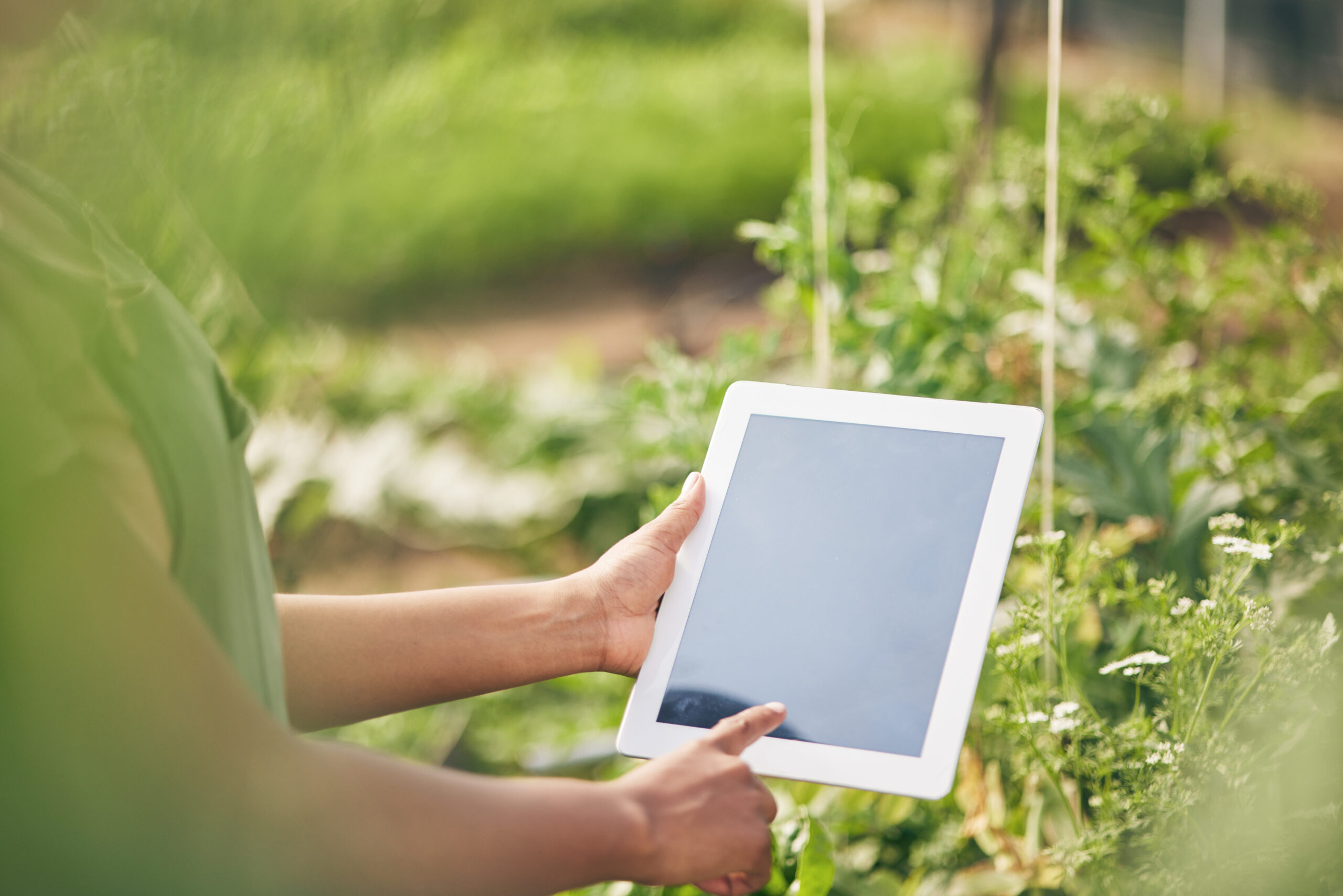Funding Update: DAISI announces funding for One Full RCT, Three Pilots, and One Proposal Development Grant from Fall 2023 Competition Round

Photo Credit: Adobe Stock
The Digital Agricultural Innovations and Services Initiative (DAISI) was launched in 2021 to rigorously evaluate programs that increase the availability, quality, and reach of bundled, digital agricultural solutions and services for small-scale agricultural producers. DAISI’s research agenda is oriented around six main themes which aim to shed light on what drives farmers’ adoption of digital services, the impacts of these bundles on agricultural outcomes, and which element(s) of a bundle are key to its success, as well as implications for indirect impacts. DAISI also prioritizes research which generates evidence on three cross-cutting themes of empowering women farmers, engaging youth in agriculture, and increasing the resiliency of small-scale producers against climate change.
In Fall 2023, DAISI implemented one funding competition and awarded research funds to one full randomized evaluation, three pilots, and one proposal development grant in Ethiopia, Ghana, India, Nigeria, and Rwanda. Read more about the funded projects below, and refer to our past funding updates (Fall 2022, Spring 2023) for previously funded projects.
Compared to previous decades, farmers with access to a mobile phone in low and middle-income countries can benefit from more precise, localized information to aid their farming practices and decision-making. For example, improved weather forecasting can help farmers better time input application or harvest, and image recognition applications can help farmers diagnose and treat pest and plant disease. The recent State of the Digital Agriculture Sector Report, supported by USAID’s Feed the Future initiative, remarks on the business outlook of digital advisory services, and notes a shift towards bundling advisory services with additional service offerings such as market linkages and financial access. DAISI is pleased to announce funding for one randomized evaluation and three pilots that partner with mature digital providers offering digital and bundled tools and services to farmers and/or farmer cooperatives.
Researchers Shweta Bhogale (J-PAL K-CAI) and Namrata Kala (MIT; DAISI) are testing the rollout of new coldrooms in markets spread across Odisha, India, in combination with digital technologies that improve access to these facilities. Researchers report that in this study context, farmers and vendors are forced to distress-sell any perishable produce at lower prices, and experience spoilage losses. This full randomized evaluation aims to understand if effective coldroom infrastructure can bolster farmers’ income by enabling them to store their produce longer, allowing them to wait for favorable market conditions and minimizing spoilage losses
In Ethiopia, a public and private partnership was established in 2019 between the International Maize and Wheat Improvement Center, Lersha, and government institutions to deliver agro-climate advice bundled with complementary services to more than 100,000 small-scale farmers. Through this service, farmers’ access farm inputs, hire mechanization services, and/or receive tailored agro-climate advice (advisory services) through a digital platform, call center, or in-person agents stationed across the service area. Researchers Mesay Gebresilasse (Amherst; DAISI), Kindie Fantaye (CIMMYT), and Susan Godlonton (Williams; DAISI) aim to understand take-up of the service, and will investigate whether bundling agro-climate advisory with other agricultural services improves the impact of the intervention, and how impact of bundled and unbundled agro-climate advisories vary by gender, age, geography, and farm type.
In Nigeria, small-scale farmers often lack access to timely, affordable, and quality farm inputs, such as fertilizers and herbicides. Researchers Segun Bamidele Fakayode (Federal University Oye-Ekiti; DAISI scholar), Toyin Olowogbon (Center for Sustainable Agricultural Empowerment Nigeria; DAISI scholar), Toyin Olugbemi (Energy Commission of Nigeria) and Aaron Yoder (University of Nebraska) are partnering with a Nigerian software company (Agribroom) that matches farmers’ seeking farm inputs with input suppliers. Farmers’ place orders for inputs digitally. Orders are then aggregated, sent to contracted input producers, and delivered to the nearest redemption point for each farmer/customer location. Field officers deliver inputs, carry out farmers’ verification, clear the orders, and reach out to additional farmers who might be interested in the service. Participant farmers’ also receive related advisory services on how to optimally use farm inputs. Researchers will assess the take-up of the digital platform, input purchases and prices, and will measure the monetary value of maize output. The pilot study will prepare for a randomized evaluation to generate new evidence on the impact of bundling access to farm inputs with relevant advisory services.
In Rwanda, many small-scale farmers leverage cooperatives—often groups cultivating similar crops in close proximity—to share input costs and optimize resources. Jeremy Magruder (UC Berkeley; DAISI) is partnering with a Rwandese agro-tech company, that provides an online platform for agricultural cooperatives and individual farmers. At the cooperative-level, the platform digitalizes record keeping, allowing cooperatives to generate reports to support their crop production, finance, and sales decisions. At the farmer-level, the platform provides access to extension services, markets, and capital. The USSD platform utilizes Unstructured Supplementary Service Data (USSD) codes which means it is accessible on all mobile devices, even without the internet, ensuring smallholder farmers with non-internet enabled phones can easily use it. The take-up results of the pilot study will inform a future randomized evaluation and provide insight into the feasibility of using a cooperative-level platform to change on-farm investment and output.
The Importance of Early Stage Development to Scope Partnerships and Early-Stage Questions
DAISI funds small grants to support preliminary, exploratory research activities, including researcher travel. These grants facilitate opportunities for researchers and partners to develop trust and scope early-stage evaluation questions.
In Ghana, Yazeed Abdul Mumi, Abdul-Basit Tampuli Abukari and team will survey Ghanian livestock producers to understand their experiences with Radio-Frequency Identification technologies (RFID) used to digitally monitor the health and location of livestock. They are particularly interested in examining women’s interaction with these platforms, as gender-bias might prevent women from participation in the livestock businesses.